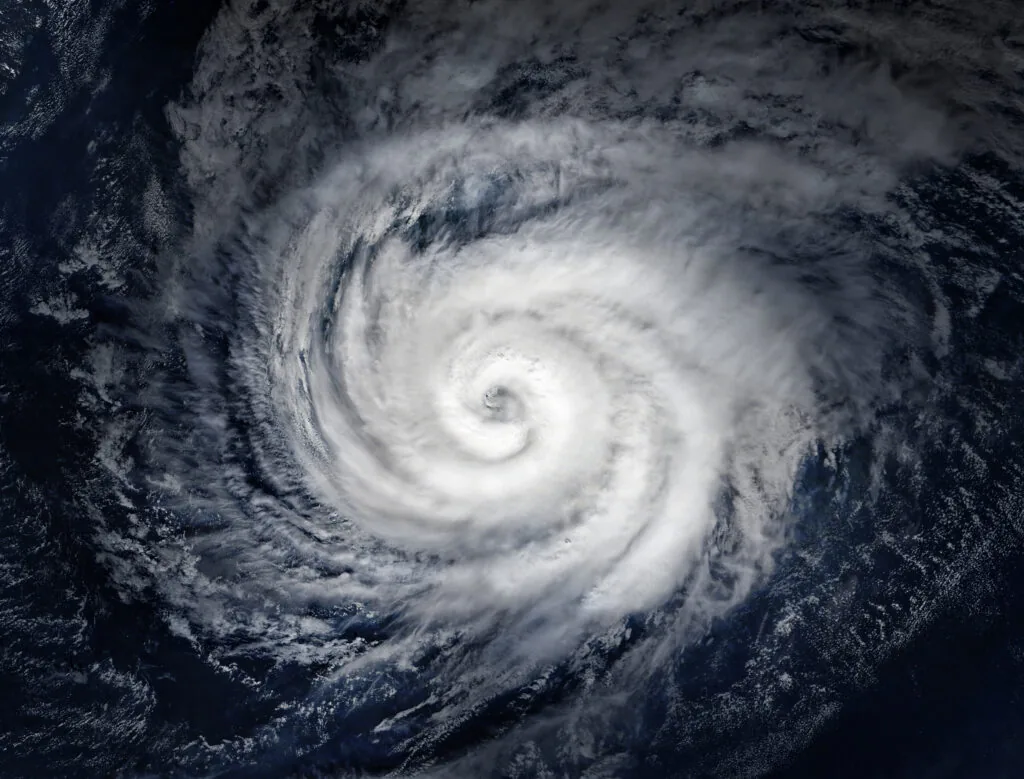In recent weeks, hurricanes have devastated communities across the East Coast. Hurricane Helene, one of the biggest Gulf storms on record, left destruction in its wake across six states, including in mountainous areas normally thought to be safe from hurricanes. Only two weeks after Helene, Hurricane Milton made landfall as a Category 3 hurricane.
Behind the deluge of headlines about hurricanes, tropical storms, wildfires and more, emergency management professionals are working around the clock to protect communities from the impact of natural and human-made disasters. USC Online spoke with David Kang, a USC Bovard College professor and director of the Planning and Exercise Division in the Office of Response and Recovery at the Federal Emergency Management Agency (FEMA), about the growing relevance of the emergency management field in the wake of recent hurricanes and other disasters.
How Do Emergency Managers Mitigate Disasters?
At the time of the interview, Kang and his colleagues were continuously working to mitigate the impact of Hurricanes Helene and Milton. However, Kang stressed that emergency management is a full-time job even during non-disaster periods, which emergency management professionals call “blue sky” operations.
In one of the two courses Kang helped design for USC Bovard College’s Master of Science in Emergency Management (MSEM) online program, he teaches students to analyze risks and plan what resources are needed to recover from them during those “blue sky” periods.
“Planning provides structure to ill-structured or unstructured problems. And when you’re dealing with uncertainty, that’s what planning does,” Kang said.
When a disaster hits — whether a natural one like a hurricane or a human-made disaster like conflict — emergency management professionals transition to crisis planning.
For example, in the case of hurricanes, emergency management professionals like Kang seek to reduce uncertainty by understanding weather forecasts, anticipating the disaster’s impact on people and the built environment, learning from past disasters and planning how much recovery will cost and how long it will take.
What is the Future of Emergency Management?
No matter the situation, emergency management professionals need to be well-versed in human behavior, psychology and sociology. They must also understand the interconnected systems of the built environment — all the human-made elements, from roads to buildings, that are impacted by natural disasters.
Because emergency management is a rapidly growing field and disasters come in endless variations, graduate courses like USC Bovard College’s teach professionals key, overarching tenets and critical thinking skills that they can apply to specific scenarios. Local first responders, aid workers and people who are already emergency managers are among those who find the program useful, Kang said.
“I think [emergency management] is a maturation of the larger security studies portfolio, as well as an offshoot of sociology, psychology, law enforcement [or] security studies,” Kang said. “So, it’s a unique niche that’s formalizing because the conditions require it.”
Emergency management is evolving, too. Kang predicted that emergency management professionals will increasingly need to prepare for and respond to climate change-related disasters and challenges caused by nation-state conflicts.
“All you have to do is turn on the news to see how relevant the degree is,” Kang said. “And in fact, my guess is, if I’m to look at 10 to … 20 years out, this field [will] grow and probably be one of the most sought-after fields within both the private sector and government.”
Learn more about the Master of Science in Emergency Management (MSEM) online program today.

